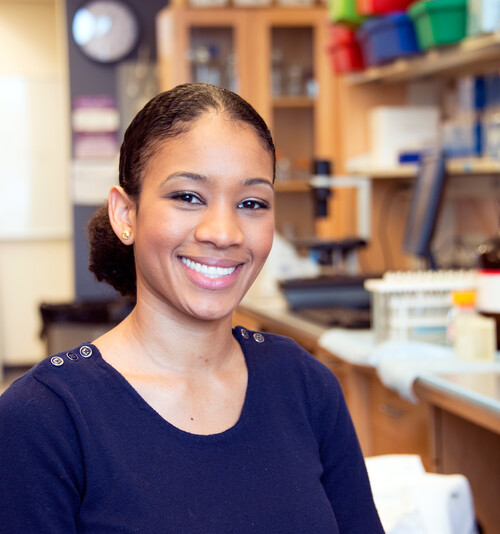Whitney Henry

Since her years working with a cancer biologist as an undergraduate at Grambling State University, Whitney Henry had been looking for a way to combine cancer biology with cell biology, and to translate laboratory research into specific treatment recommendations for patients. Two years ago, in the Toker lab at Beth Israel Hospital, her PI dropped a new article from the New England Journal of Medicine onto her desk. “I have the most bizarre project idea for you,” he said.
The article described research showing that for colon cancer patients with a mutation in the gene PIK3CA, regular doses of aspirin were associated with higher survival rates. “Aspirin’s something everyone uses, but it isn’t something you read about very often in professional journals,” Whitney says. “And when you do encounter it, it’s in the context of inflammation, not cancer.” Deciding to pursue the lead, though, she designed a course of research to investigate whether the same positive correlation might hold for breast cancer, which afflicts around one in every eight women in the US. Of those with breast cancer, some 25-30% carry the PIK3CA mutation.
Whitney’s research now involves dissolving aspirin in solution, and applying it to cell lines derived from breast cancer patients. Her data seems to indicate that the solution decreases the growth of breast cancer cells, too. Much remains to be learned about this effect, including its specific biochemical mechanism, and whether aspirin is preventing the growth of new cancerous cells, or only delaying it. But the positive results suggest a clear course of future research, and Whitney is already engaged in an epidemiological study comparing cancer patients on and off regular doses of aspirin. And although her work focuses on a specific mutation, she’s beginning to look into whether aspirin might be paired with other drugs to create advanced combination therapies for breast cancer sufferers.

